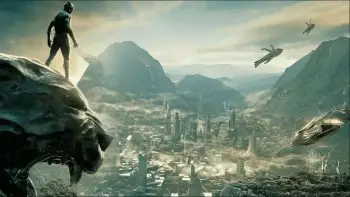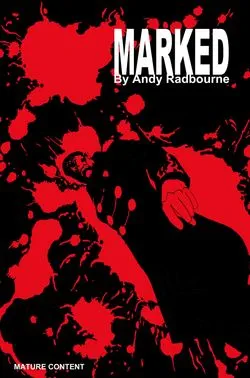⠪
Wakanda - A PROBLEMATIC NATION
Published: 15th December 2024, by Andrew Radbourne.
My musings on the incongruous nature of the world building for the nation of Wakanda in the MCU
Greetings everyone,
I've long contemplated addressing a topic that has the potential to stir up a storm - the critical examination of the fictional nation of Wakanda. This article isn't a critique of the Movies but a deeper delve into the world building.
Black Panther has been highly acclaimed for its representation of African futurism, which is indeed visually inteesting. However, there are fundamental issues within the structure of Wakanda, the fictional country in which the movie is set. Wakanda is depicted as a hierarchical, unequal, isolationist, nationalist, undemocratic ethnostate - elements that typically do not garner applause in the real world.
To begin, Wakanda is portrayed as the most technologically advanced nation in the world, primarily due to its exclusive access to vibranium. This magic BS metal is versatile, (to say the least!) with capabilities ranging from powering weapons to medical treatments and advanced technology. However, Wakanda hoards this resource, even though it has the potential to change the world and save numerous lives. This self-centred approach to vibranium is particularly disconcerting when considering the historical atrocities that have occurred in African nations, many of which Wakanda could have potentially prevented.
It's cool that people feel empowered by it, despite these glaring inconsistencies, and cheer them on with chants of "Wakanda forever!" This embrace of Wakanda's moral ambiguity seems to be in stark contrast to the widely accepted tenet of Marvel, "With great power comes great responsibility," or the broader philosophy, "All that is necessary for the triumph of evil is that good men do nothing."
Moreover, the futuristic utopia of Wakanda raises the question of the necessity of Black Panther himself. If Wakanda is an isolated, technologically advanced powerhouse, why do they need a superhero? And if they do, why is T'Challa the only one given the powers and the best suit, while other soldiers are sent into battle inadequately armed?
Wakanda's cultural traditions also appear anachronistic and contradictory. The process of choosing a king through hand-to-hand combat seems out of place in a modern African nation, let alone a technologically advanced one. The blend of old and new methods, while visually interesting at times, is often implausible and lends itself to stereotyping.
In conclusion, the world of Wakanda is problematic, not due to individual characters, but due to the structure and values of the society itself. Despite this, many viewers seem to overlook these issues, choosing instead to celebrate Wakanda as a symbol of unblemished virtue. As we navigate an era where nations are held accountable for their past transgressions, shouldn't we examine fictional worlds like Wakanda with the same critical lens.
Thank you for reading. If you want a deeper dive there is more detail in the video itself.
As always, I appreciate your engagement and look forward to hearing your thoughts. Until next time, peace out.
I've long contemplated addressing a topic that has the potential to stir up a storm - the critical examination of the fictional nation of Wakanda. This article isn't a critique of the Movies but a deeper delve into the world building.
Black Panther has been highly acclaimed for its representation of African futurism, which is indeed visually inteesting. However, there are fundamental issues within the structure of Wakanda, the fictional country in which the movie is set. Wakanda is depicted as a hierarchical, unequal, isolationist, nationalist, undemocratic ethnostate - elements that typically do not garner applause in the real world.
To begin, Wakanda is portrayed as the most technologically advanced nation in the world, primarily due to its exclusive access to vibranium. This magic BS metal is versatile, (to say the least!) with capabilities ranging from powering weapons to medical treatments and advanced technology. However, Wakanda hoards this resource, even though it has the potential to change the world and save numerous lives. This self-centred approach to vibranium is particularly disconcerting when considering the historical atrocities that have occurred in African nations, many of which Wakanda could have potentially prevented.
It's cool that people feel empowered by it, despite these glaring inconsistencies, and cheer them on with chants of "Wakanda forever!" This embrace of Wakanda's moral ambiguity seems to be in stark contrast to the widely accepted tenet of Marvel, "With great power comes great responsibility," or the broader philosophy, "All that is necessary for the triumph of evil is that good men do nothing."
Moreover, the futuristic utopia of Wakanda raises the question of the necessity of Black Panther himself. If Wakanda is an isolated, technologically advanced powerhouse, why do they need a superhero? And if they do, why is T'Challa the only one given the powers and the best suit, while other soldiers are sent into battle inadequately armed?
Wakanda's cultural traditions also appear anachronistic and contradictory. The process of choosing a king through hand-to-hand combat seems out of place in a modern African nation, let alone a technologically advanced one. The blend of old and new methods, while visually interesting at times, is often implausible and lends itself to stereotyping.
In conclusion, the world of Wakanda is problematic, not due to individual characters, but due to the structure and values of the society itself. Despite this, many viewers seem to overlook these issues, choosing instead to celebrate Wakanda as a symbol of unblemished virtue. As we navigate an era where nations are held accountable for their past transgressions, shouldn't we examine fictional worlds like Wakanda with the same critical lens.
Thank you for reading. If you want a deeper dive there is more detail in the video itself.
As always, I appreciate your engagement and look forward to hearing your thoughts. Until next time, peace out.
I'm giving this a score of 3

Comments:
No comments yet.



